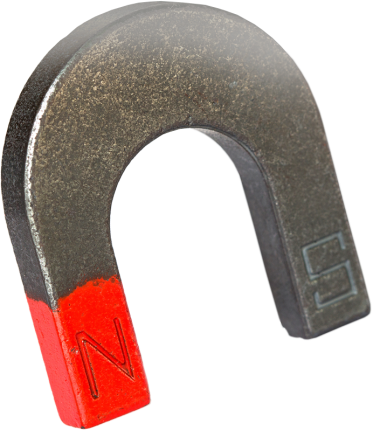Debate: Is Bid Management Dead?
Morning. Everyone will be happy to know that Susan and I both arrived on time to this morning’s session. And I still had time to dry my hair. And get coffee. How sweet it is!
But enough about my morning. Jeffrey Rohrs is moderating this morning’s paid search debate with speakers Robert Ashby (Microsoft), Peter Hershberg (Reprise Media), Misty Locke (Range Online Media), and Chris Zaharias (Strategic Initiatives Efficient Frontier). Let’s get to it.
Jeffrey explains the format for this morning’s debate. We have the "Dead Team" and the "Not Dead Team". Misty and Peter are on the "Dead Team" while Chris and Robert are on the "Not Dead Team". I think I am so going to hate blogging this.
First up is Misty.
Oh, good heavens. Misty is the fastest speaker in the history of the world. I want more coffee. More coffee!
Misty says that bid management is not dead but the belief that a magic black box can understand your past, your present and your future is. It is simplistic to think that one tool fits all needs or solves all marketing challenges. (Had that been suggested?)
She says she is not here to debate whether technology provides efficiencies. She is here to challenge how we view search marketing and explore the many variables that challenge to be the "be all/end all" technology. She’s here to encourage you to think outside what you think bid management is.
She offers three principles why bid management is dead. She also says she hates me and that’s why she’s talking so fast. [Oh, like she even knows you exist. Not everything is about you, Lisa. –Susan]
- The basic build and fundamental of a bid tool is lacking
- It’s simplistic to think of search engine marketing as just keywords
- Does take into account consumer intent
Search engines are no longer bid to position: Limited data means uninformed bid decisions, which impacts promotions. Bid management tools are limited by time. It takes too long to gather information. They ignore conversation rate factors related to landing pages and path to conversion. Trends that do not follow exact dates or those that require anticipation of the marketers. They don’t allow marketers to influence bids by news, people, fear and life.
Simplistic Tunnel Vision – Search is not just about keywords. It’s about generating demand and not just waiting to capture it. It’s about optimizing the influence between online programs and search marketing.
It’s also not about the last click to conversion. 71 percent of store purchases can from online search. Bid management tools ignore the offline marketing campaigns.
Consumer intent: Consumer intent cannot be managed by a tool. Marketing is an art, not a science You can provide efficiencies through tool management but viewing search as direct marketing alone can do all is limiting your growth.
Next up is Robert to cross examine Misty’s statement. Hopefully Robert speaks slower than Misty. Otherwise I get to hit Susan in the face. (She’s sitting next to me. Dude, find a friend.)
Robert starts off, "Misty, Misty, Misty". For serious, Robert. Did you hear how fast she was speaking?
Robert asks: How can you possible expect humans to manage a tail of thousands of keywords again? Misty quips that he’s misrepresenting her point. She believes tools have a place, they’re just not the end all be all of search marketing. Misty didn’t get the note that she’s defending the Tools Are Dead position, methinks.
Misty concedes that big management tools can help, yes. But they’re not the best way to run a search engine marketing campaign.
Robert says there’s an open question out there that says there are influences that affect search engine marketing. But aren’t those influences representing customer behavior themselves?
Misty argues that bid management tools have a delayed reaction because they have to take into account all the information. You cannot put a bid management tool on your system and walk away and not look at it. It’s not just the consumer path. It’s also the marketing intent.
Robert: Think of it has having not a hammer but a steam hammer to run a better campaign. How else would you manage your search engine marketing campaign without tools? Yeah, I’m with Robert.
Jeffrey yells time before Misty can answer the question.
Chris is up to tell us why bid management is not dead.
Chris says he’s going to start by explaining the history of bid management to give us some context. Aw, thanks, Chris.
The history of bid management is that back in 2001-2 there were people taking advantage of search and buying keywords. They knew they had to track things so they built spreadsheets to see what keywords they should bid more on and which ones they could drop. The early bid management firms took advantage of a transparent bid market, but that all went away when Google and Yahoo entered the space. Bid management is not a viable option because the search engines are no longer transparent. There are many proofs that not only does bid management exist today, but that it works well.
[I don’t get this debate. Of course bid manage exists today and of course it’s necessary. Why are we here? I could be sleeping. Or at least getting more coffee.]
The first proof he offers is a simulation of the sum total for an advertising campaign on a particular search engine. It shows the set of operating points for a campaign. There are at least 5-7 firms that provide these stats. They’ve built systems that can take historical impression, click costs, margin data, update it in real-time and build a meaningful understanding of the operating points for a keyword set, which can then be turned into an automated action.
Second point: The biggest challenge in search today is that advertisers’ and their agencies do not have enough time to do all of the things that add up to advertising and merchandising because they’re wasting their time trying to manually do what these tools do automatically. People can’t do the things that matter most, improving ad copy, improving landing page conversation rate, because they’re stuck looking at math (ew, math).
He believes that while Misty is right, the reality is there are very few agencies that can scale to offer appropriate bid management services.
There are at least a dozen firms that have built and are selling big management systems. He lists companies like aQuantive, DoubleClick, 27/7, Did-it, etc. They are all selling bid management services. Some are even getting acquired by larger companies for huge sums of money. Yeah, aQuantive and DoubleClick!
Also, there’s a reason Google charges for its API, he says. People are using it. Every major search engine has an API; those that don’t are buying them. Automated campaign optimization does not apply to engines with opaque bid landscapes.
Up next is Peter to cross examine Chris’ statements.
[My wrists are going to fall off. I am so totally serious.]
When there was complete transparency in the marketplace the only way to get a higher position was to bid higher. Are there additional ways you can do that today?
Chris: Absolutely. You can improve your click through rate, conversion rate, you can buy keywords people aren’t buying, etc. However, agencies don’t have the time do to that because they’re trying to manage their bids manually. They’re getting lost in all the math. Math eats people.
Peter: Is it true that quality score creates the scenario where two advertisers are required to pay different CPCs for the same keywords? Absolutely, says Chris.
Peter asks: Let’s say we’re bidding on the same keyword but the engines require us to pay two different prices. Don’t I already win because I’m required to pay higher?
You have to react to not just one keyword but to the whole portfolio of keywords so you can react and optimize your whole set of keywords. It can be done, but most firms don’t have the time to address that.
Misty and Peter now get a four minute rebuttal. I wish I took debate. I’m so confused.
Peter says they’ve been asked to take a position that is somewhat overstated. No one believes that bid management is absolutely dead, but it is no longer associated with search marketing. There was a time where as long as your ads were relevant, you could buy your way into the results, however, you can’t do that anymore. When you could, your success was dependant on bid management.
It’s not about how much you can pay anymore, but whose ads are more relevant. There are any number of variables – ad copy, landing page content, etc. All of these things determine what you’re going to have to pay. He doesn’t want to underestimate the power of bid management, but it’s really just one variable in a much larger equation.
Peter says his sense very early on was that bid management would become monetized over the long term. If history has shown us anything, that would be a consideration.
What happens when these things are given away for free? The value gets put into the adjacencies into the commodity. From our standpoint, successful search engine marketing comes down to creating relevant ads, good keywords, good copy, good landing page, etc. Also taking account things that are going on in the offline world. Bid management is just one variable.
Misty says she can’t better Peter’s comment, Thank goodness. I mentioned she talks really fast, right?
Robert disagrees that bid manage is dead. It’s a foundation by which you’re allowed to do other things. When you look at the foundation of the building, it’s what you use to set up what you can do. You don’t want to spend a lot of time on it, but you have to. If you don’t, it will sap your resources. If you don’t watch what you’re doing, you’ll blow your entire budget on a very limited reach. Bid management allows you to focus your energy on other things and the metrics that you care about. You can quickly react when your business changes its goals. It allows you to quickly optimize. You can devote your time to things that you care more about. Like eating cookies!
What are the variables that you want to take into account in result of taking that bid? Google, Yahoo and Microsoft deploy technology to predict what customers need. There’s no reason why a bid management system can’t do the same thing for you and allow you to focus on your customer, not the bid.
Chris says that search engine marketing is operating in search and content. It’s about making search more efficient. The same auction systems that are now powering search are going to find their way into the larger advertising market. The only way that will not happen is if we have a catastrophe. It is absolutely critical for advertisers to have systems in place that let them capture and analyze the data so they can manage their campaigns. Bid management is absolutely not a commodity. It’s the core system of all mediums, not just search.
If you look at the value chain of search I will be the first to acknowledge that more important than working with us. You need to work with technology because the things that do matter the most are the marketing and the merchandise. The situation we see in marketplace is the advertisers who all know they need to do these things aren’t able to get to them because they’re stuck in a never-ending match calculation. The role of bid management is to do in an efficient way what needs to be done so advertisers can focus on more important things.
Misty and Peter get three min to wrap up.
Oh, no. Misty is speaking again. Cries.
She thinks the other boys agreed with her statement: You need tools to get the job done. It is not humanly impossible, but it is more efficient. She uses bid technologies, the difference is real search marketers (!) look at it outside of just a bid tool (smack!). In our company, we don’t sell the technology, she says. We don’t name it and we don’t push it. A keyword is just as important as the TV advertisement you put out there. How you manage that is by expertise, not bid management alone. Thinking of a keyword as just a word will limit your growth. You have to think about the human influence. That is not a high match equation.
Peter: All three major engines use some form of quality bid system. That’s been very frustrating for advertisings, but if nothing else it put the M back in search marketing. It’s not just a big math equation. At the end of the day it is absolutely marketing.
A hand poll shows that the audience didn’t change their opinion. It’s probably because they didn’t have their coffee this morning. Big hugs for everyone.
Q&A

One Reply to “Debate: Is Bid Management Dead?”
I would like to say no. This can not dead but stopping the service might be hamper the campaign and its might be gradually terminated. So that is very important to look this as well
LEAVE A REPLY









